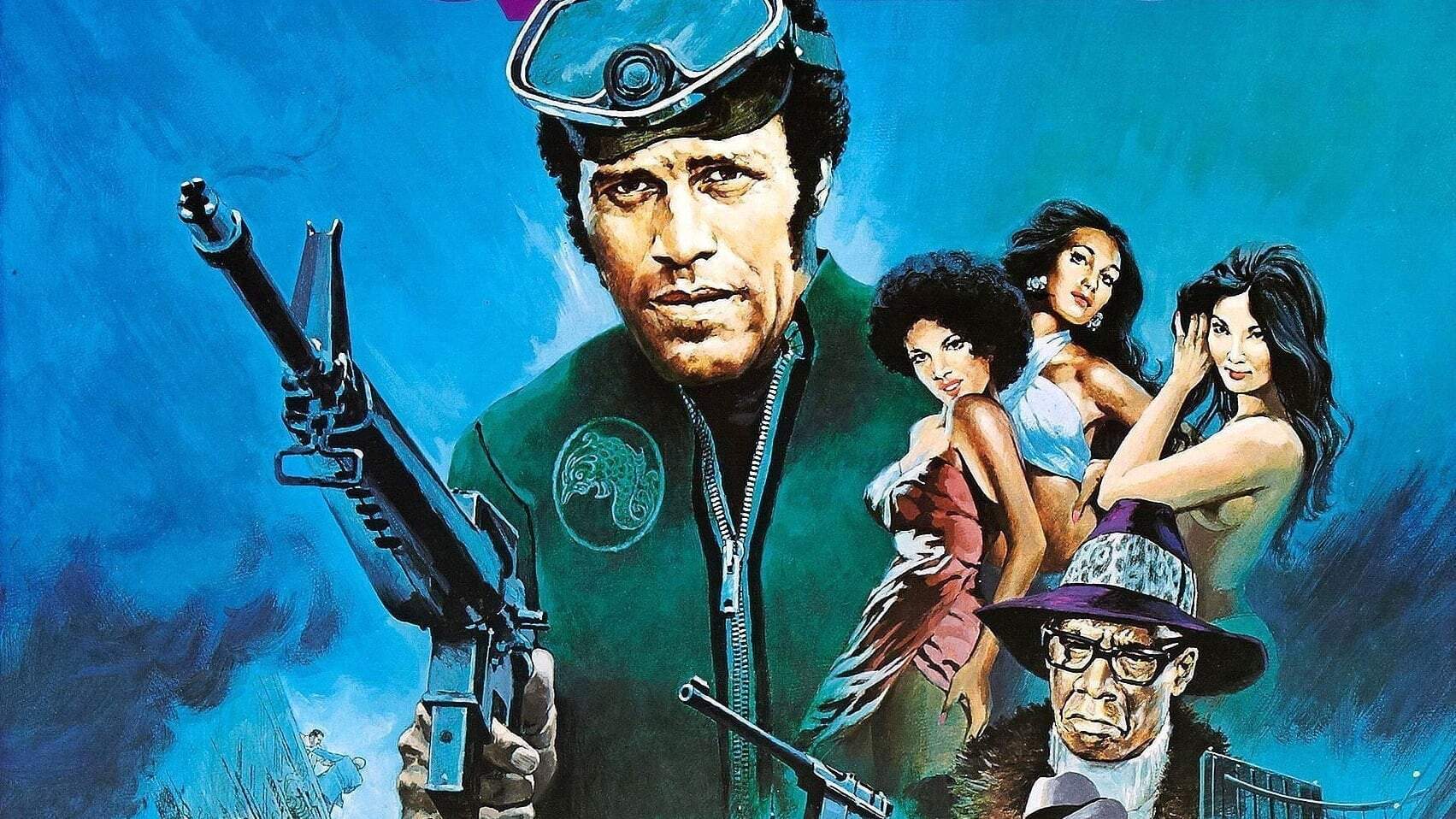
Black Caesar is a classic crime drama film that has captivated audiences since its release in 1973. Directed by Larry Cohen and starring the talented Fred Williamson, the movie tells the gripping story of Tommy Gibbs, a streetwise young man who rises to power in the world of organized crime.
With its gritty portrayal of the criminal underworld and powerful performances, Black Caesar has become an iconic film in the blaxploitation genre. It not only entertained audiences but also offered valuable insights into the social and political climate of the time.
In this article, we will delve into 46 fascinating facts about Black Caesar, shedding light on behind-the-scenes anecdotes, the film’s impact on popular culture, and the talented individuals who brought this gripping story to life.
Key Takeaways:
- Black Caesar is a 1973 crime drama film starring Fred Williamson, known for its powerful storytelling, social commentary, and influence on the blaxploitation genre.
- The movie’s success led to a surge in blaxploitation films, showcasing the struggles of African-American communities and the rise of leading actor Fred Williamson.
The movie Black Caesar was released in 1973.
Black Caesar is a crime drama film that was directed by Larry Cohen and released in It follows the rise and fall of a Harlem gangster named Tommy Gibbs.
It stars Fred Williamson in the lead role.
Fred Williamson plays the protagonist, Tommy Gibbs, in Black Caesar. His powerful performance earned him critical acclaim and established him as a leading actor in the blaxploitation genre.
Black Caesar was a significant success at the box office.
The movie was made on a budget of $600,000, but it grossed over $4 million at the box office, making it a commercial success.
It is considered a landmark film in the blaxploitation genre.
Black Caesar is often regarded as one of the defining movies in the blaxploitation genre, which emerged in the early 1970s and featured African-American leads in action-packed stories.
The film was inspired by the real-life exploits of gangster Ellsworth “Bumpy” Johnson.
Black Caesar draws inspiration from the life of reputed Harlem gangster Ellsworth “Bumpy” Johnson, who was involved in organized crime during the 1930s and 1940s.
James Brown composed the soundtrack for the movie.
Renowned musician James Brown provided an electrifying soundtrack for Black Caesar, which perfectly complemented the gritty and intense atmosphere of the film.
The movie was a critical success as well.
Black Caesar received positive reviews from critics, who praised its powerful storytelling, strong performances, and social commentary on race and power dynamics.
Black Caesar was followed by a sequel titled Hell Up in Harlem.
The success of Black Caesar led to a sequel called Hell Up in Harlem, which continued the story of Tommy Gibbs and his criminal empire.
The film explores themes of power, corruption, and redemption.
Black Caesar delves into the corrupting influence of power and the struggle for redemption, as Tommy Gibbs rises to power but eventually faces the consequences of his actions.
Black Caesar was shot on location in New York City.
The film captures the gritty atmosphere of 1970s New York City, as it was largely shot on location in Harlem and other parts of the city.
The movie features intense action sequences.
Black Caesar is known for its thrilling action sequences, including shootouts, car chases, and hand-to-hand combat, which keep the audience engaged throughout the film.
It showcases the racial tensions of the era.
Set against the backdrop of racial tensions in 1970s America, Black Caesar highlights the struggle for power and equality faced by African-Americans during that time.
The film’s success helped pave the way for more blaxploitation movies.
Black Caesar’s commercial success opened doors for other blaxploitation films, leading to a surge in the genre throughout the 1970s.
The character of Tommy Gibbs is a complex anti-hero.
Tommy Gibbs, played by Fred Williamson, is portrayed as a complex and morally ambiguous character, which adds depth to the film.
It was retitled “Godfather of Harlem” in some international markets.
To capitalize on the success of The Godfather, Black Caesar was released under the title “Godfather of Harlem” in certain international markets.
The film’s screenplay was written by Larry Cohen.
Larry Cohen, who also directed the film, wrote the screenplay for Black Caesar. His gritty and realistic storytelling contributed to the film’s success.
Black Caesar has a cult following.
Over the years, the film has gained a cult following among fans of blaxploitation cinema, appreciating its raw energy and social commentary.
It was remade in 1990 as a TV movie.
A television movie remake of Black Caesar was released in 1990, featuring actor Laurence Fishburne in the lead role.
Black Caesar is one of the most influential films in African-American cinema.
The movie’s impact on African-American cinema cannot be overstated, as it broke new ground and paved the way for future generations of filmmakers.
It is based on a character created by James Mills.
Black Caesar is based on a character created by author James Mills in his novel “The Harlem Godfather.
The film’s realistic portrayal of violence set it apart.
Black Caesar was notable for its realistic and gritty depiction of violence, which added to the film’s authenticity.
Black Caesar was released during the peak of the blaxploitation era.
The film’s release in 1973 coincided with the height of the blaxploitation era when numerous films targeting African-American audiences were being produced.
The film tackles issues of social inequality.
Black Caesar sheds light on the social inequalities faced by African-Americans in 1970s America, challenging societal norms and expectations.
It features a strong supporting cast.
In addition to Fred Williamson’s powerful performance, Black Caesar boasts a talented supporting cast, including Gloria Hendry, Julius Harris, and D’Urville Martin.
The original title of the film was “The Harlem Godfather.”
Before being retitled as Black Caesar, the movie was originally titled “The Harlem Godfather,” reflecting its focus on Tommy Gibbs’ rise to power in Harlem.
Black Caesar is known for its memorable quotes.
The film is replete with memorable quotes, including the infamous line, “The only price has been paid… now it’s payback time.”
It explores the blurred lines between law enforcement and organized crime.
Black Caesar delves into the complex relationship between law enforcement and organized crime, highlighting the blurred lines between the two in the world of Tommy Gibbs.
The movie’s poster features a striking image of Fred Williamson.
The poster for Black Caesar prominently features a striking image of Fred Williamson as Tommy Gibbs, capturing the intensity and charisma of his character.
The film’s soundtrack was released as a standalone album.
James Brown’s iconic soundtrack for Black Caesar was so popular that it was released as a standalone album, gaining recognition outside of the film.
Black Caesar influenced future gangster films.
The film’s portrayal of the rise and fall of a gangster had a lasting impact on the genre, influencing future gangster films such as Scarface and American Gangster.
It showcases the fashion and style of the 1970s.
Black Caesar offers a glimpse into the fashion and style of the 1970s, with characters sporting afros, platform shoes, and colorful outfits.
The film was shot in a documentary-style format.
Black Caesar was shot in a documentary-style format, adding to its realistic and gritty portrayal of the crime-ridden streets of Harlem.
It has been praised for its social commentary.
Black Caesar has been widely praised for its social commentary on issues such as racial inequality, poverty, and the corrupting influence of power.
The movie’s success led to the creation of a blaxploitation film subgenre.
Black Caesar’s success paved the way for a wave of blaxploitation films that featured African-American leads and storylines targeting urban audiences.
The film’s title refers to the rise of a gangster in the criminal underworld.
Black Caesar draws its title from the concept of a black man ascending to power and becoming a prominent figure in the criminal underworld.
Black Caesar explores themes of revenge and betrayal.
The film delves into the themes of revenge and betrayal as Tommy Gibbs seeks vengeance against those who wronged him.
The movie has been referenced in popular culture.
Black Caesar’s cultural impact is evident through references and homages in various forms of media, including music, television, and other films.
The success of Black Caesar led to Fred Williamson’s rise as a leading actor in the genre.
Fred Williamson’s portrayal of Tommy Gibbs catapulted him to stardom, establishing him as one of the iconic actors of the blaxploitation era.
The film’s narrative is driven by Tommy Gibbs’ pursuit of power and control.
Black Caesar centers around Tommy Gibbs’ relentless quest for power and control, which ultimately leads to his downfall.
The movie’s gritty realism contributed to its appeal.
Black Caesar’s gritty and realistic depiction of the harsh realities of life in the criminal underworld resonated with audiences, adding to its appeal.
It features a memorable opening sequence.
The film opens with a powerful and memorable sequence that sets the tone for the rest of the story, immediately capturing the audience’s attention.
Black Caesar showcases the struggles faced by African-American communities.
The film sheds light on the struggles faced by African-American communities, providing a social commentary on the challenges of the time.
The movie’s success led to a surge in blaxploitation films in the 1970s.
Black Caesar’s box office success sparked a wave of blaxploitation films that offered African-American audiences relatable and empowering stories.
It features a mix of drama, action, and social commentary.
Black Caesar seamlessly blends elements of drama, action, and social commentary, creating a captivating viewing experience.
The film’s legacy lives on.
The impact of Black Caesar can still be felt today, as the movie continues to be celebrated as a classic of the blaxploitation genre.
Black Caesar is a must-watch for fans of blaxploitation cinema.
For fans of the blaxploitation genre or anyone interested in exploring African-American cinema, Black Caesar is a must-watch film that encapsulates the spirit and essence of the era.
Conclusion
Black Caesar is a classic movie that continues to captivate audiences with its thrilling storyline and memorable performances. With its iconic portrayal of the rise and fall of a powerful crime lord, it has become a staple in the world of cinema. The film showcases themes of ambition, betrayal, and redemption, leaving a lasting impact on viewers.
From James Brown’s electrifying soundtrack to Fred Williamson’s charismatic portrayal of the titular character, Black Caesar remains a standout in the blaxploitation genre. Its influence can still be seen in modern films, making it a must-watch for any cinephile.
Whether you’re a fan of action-packed crime dramas or interested in exploring the cultural significance of blaxploitation films, Black Caesar is sure to deliver an unforgettable experience.
FAQs
Q: Who directed the movie Black Caesar?
A: Black Caesar was directed by Larry Cohen, a renowned filmmaker known for his contributions to the blaxploitation genre.
Q: When was Black Caesar released?
A: The movie was released in 1973, during the height of the blaxploitation era.
Q: Is Black Caesar based on a true story?
A: While Black Caesar draws inspiration from real-life organized crime figures, it is not directly based on a specific true story. However, it portrays the rise and fall of a crime lord in a realistic and gripping manner.
Q: Who plays the lead role in Black Caesar?
A: The charismatic Fred Williamson portrays the lead character Tommy Gibbs in Black Caesar.
Q: Does Black Caesar have a sequel?
A: Yes, Black Caesar has a sequel titled Hell Up in Harlem, which was released in 1973. It continues the story of Tommy Gibbs as he faces new challenges and adversaries.
Q: What is the significance of the Black Caesar soundtrack?
A: The soundtrack of Black Caesar, composed by James Brown, became a hit in its own right. It perfectly captures the essence of the film and features timeless tracks like “Down and Out in New York City” and the title track “Black Caesar”.
Q: Is Black Caesar considered a blaxploitation film?
A: Yes, Black Caesar is often regarded as a prominent example of the blaxploitation genre. It combines elements of action, crime, and social commentary, highlighting the experiences and struggles of African-American characters.
Was this page helpful?
Our commitment to delivering trustworthy and engaging content is at the heart of what we do. Each fact on our site is contributed by real users like you, bringing a wealth of diverse insights and information. To ensure the highest standards of accuracy and reliability, our dedicated editors meticulously review each submission. This process guarantees that the facts we share are not only fascinating but also credible. Trust in our commitment to quality and authenticity as you explore and learn with us.


